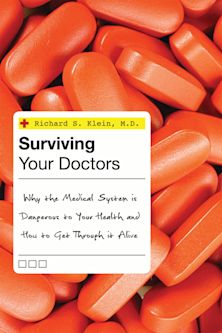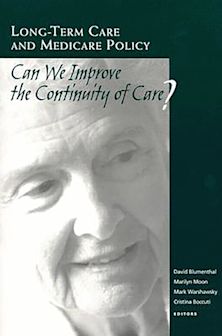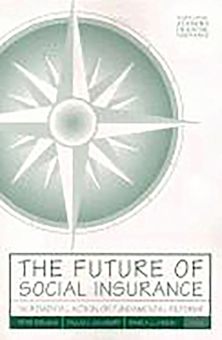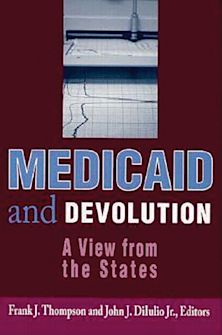- Home
- ACADEMIC
- Nursing, Health & Medical
- Primary and Community Care
- Pharmaphobia
Pharmaphobia
How the Conflict of Interest Myth Undermines American Medical Innovation
Pharmaphobia
How the Conflict of Interest Myth Undermines American Medical Innovation
You must sign in to add this item to your wishlist. Please sign in or create an account
Description
For millennia, human survival depended on our innate abilities to fight pathogens and repair injuries. Only recently has medical science prolonged longevity and improved quality of life. Physicians and academic researchers contribute to such progress, but the principal contributor is private industry that produces the tools – drugs and medical devices – enabling doctors to prevent and cure disease. Heavy regulation and biology’s complexity and unpredictability make medical innovation extremely difficult and expensive.
Pharmaphobia describes how an ideological crusade, stretching over the last quarter century, has used distortion and flawed logic to make medical innovation even harder in a misguided pursuit of theoretical professional purity. Bureaucrats, reporters, politicians, and predatory lawyers have built careers attacking the medical products industry, belittling its critical contributions to medical innovation and accusing it of non-existent malfeasance: overselling product value, flaunting safety and corrupting physicians and academics who partner with it. The mania has imposed “conflict-of-interest” regulations limiting or banning valuable interactions between industry and physicians and researchers and diverting scarce resources from innovation to compliance. The victims are patients suffering from cancer, dementia, and other serious diseases for which new treatments are delayed, reduced, or eliminated as a result of these pointless regulations. With breathtaking detail, Thomas Stossel shows how this attack on doctors who work with industry limits medical innovation and inhibits the process of bringing new products into medical care.
Table of Contents
Part I: Some Benefits and the Mechanics of Medical Innovation
Chapter 1: The Stakes
Chapter 2: A Practitioner’s History of Medical Innovation
Part II: Why We Have a Medical Innovation Crisis
Chapter 3: Enter the Conflict-of-Interest Mania
Chapter 4: The Mania Mongers
Part III: Why They Are Wrong
Chapter 5: Abusing Evidence
Chapter 6: Bad Policy Process
Chapter 7: Flawed and Damaging Policies
Chapter 8: Misunderstanding Innovation
Chapter 9: Economic Illiteracy
Chapter 10: Misplaced Criticism of Incremental Innovation
Chapter 11: Rushing to Judgment with Product Safety Alarms
Chapter 12: Demonizing Marketing is False Advertising
Chapter 13: The “Gift” Smoke Screen
Chapter 14: The Lawyers’ Ball
Part IV: The Damage They Do and How to Stop It
Chapter 15: The Price We Pay
Chapter 16: What Is To Be Done?
Product details
| Published | 23 Apr 2015 |
|---|---|
| Format | Ebook (Epub & Mobi) |
| Edition | 1st |
| Extent | 332 |
| ISBN | 9781442244634 |
| Imprint | Rowman & Littlefield Publishers |
| Illustrations | 4 b/w photos |
| Publisher | Bloomsbury Publishing |
About the contributors
Reviews
-
An accomplished hematologist and researcher at Boston’s Brigham & Women’s Hospital and the American Cancer Society professor of medicine at Harvard Medical School, Stossel’s book portrays the prevailing indictment of Big Pharma.
Fox News
-
Pharmaphobia: How the Conflict of Interest Myth Undermines American Medical Innovation—part polemic, part analytic investigation, a history of medicine and a memoir—deserves a wide readership.
The Wall Street Journal
-
Stossel provides a thorough discussion using scientific evidence to dispute the claims of the COI movement. Furthermore, he provides a number of studies indicating that there is no evidence that any of these practices result in harm to patients. . . .After being exposed to the barrage of negativism that surrounds the biopharmaceutical industry, Pharmaphobia is a refreshing validation of the value inherent in the biopharmaceutical industry. It provides a host of arguments that defend the work of the industry as well as help to reset the pendulum that has swung much too far on the side of the COI movement. For those who care about the industry and who yearn to have hard data to refute the COI movement, and even for those who want a more balanced view of the issues facing medicine and industry, Pharmaphobia is a must read.
Forbes
-
Since 2005 Stossel has been actively opposing a conflict-of-interest movement centered on the working relationships among the medical products industry, universities, physicians, researchers, and the FDA. The movement considers any exchange of money or gratuities in any amount for any aspect of medical practice—even education—as suspicious. Stossel examines in detail the negative effects of this movement on medical innovation and, consequently, public health. The book is divided into four sections, each building on the previous one. The extent of Stossel's personal involvement is covered in the first section. The second section deals with the history of the movement, regulations, and the working relationships among the groups involved. In the third section, he explains why he considers the conflict-of-interest movement ill-founded. The fourth section focuses on the cost exacted in medical innovation and education. The pros and cons of each argument are carefully evaluated. The work is well written, comprehensive, and convincing, and the author's logical progression is easy to follow. Summing Up: Highly recommended. All readers.
Choice Reviews
-
Dr. Tom Stossel [wrote a] fascinating new book, Pharmaphobia: How the Conflict of Interest Myth Undermines American Medical Innovation. . . . The reader will be left with the distinct feeling that Stossel's 'in your face' attitude and fearless defense of his position is not mere blather, but, rather the dead honest view of a consummate professional who, over the course of a long and distinguished career, has participated research that has resulted in an impressive number of important medical innovations. I would not want to be on the other side of the table debating this subject against him.
Science 2.0
-
Pharmaphobia: How the Conflict of Interest Myth Undermines American Medical Innovation is a very welcome defense of the biomedical and medical device industries against a relentless witch hunt based on a lot of supposition and very little evidence, thereby diverting countless hours and billions of dollars away from productive efforts to advance public health. Industry critics seem to believe that even the smallest financial consideration, e.g., a free pad of paper, overpowers even the largest noble objective, e.g., saving lives. The author does not claim there are no instances of misbehavior, only that the witch hunt has tragic consequences for public health. As an accomplished physician and medical researcher, he has seen first-hand the costs imposed by conflict-of-interest 'protections.' Ironically, many of the industries’ holier-than–thou persecutors display far more bias and far less intellectual integrity than their victims.To make matters worse, many in industry and academia have drunk the conflict-of-interest Kool-Aid and accepted the presumed error of their ways. A good first step would be for the alleged perpetrators to read this book and realize they are among the victims.
Journal Of Clinical Research Best Practices






























